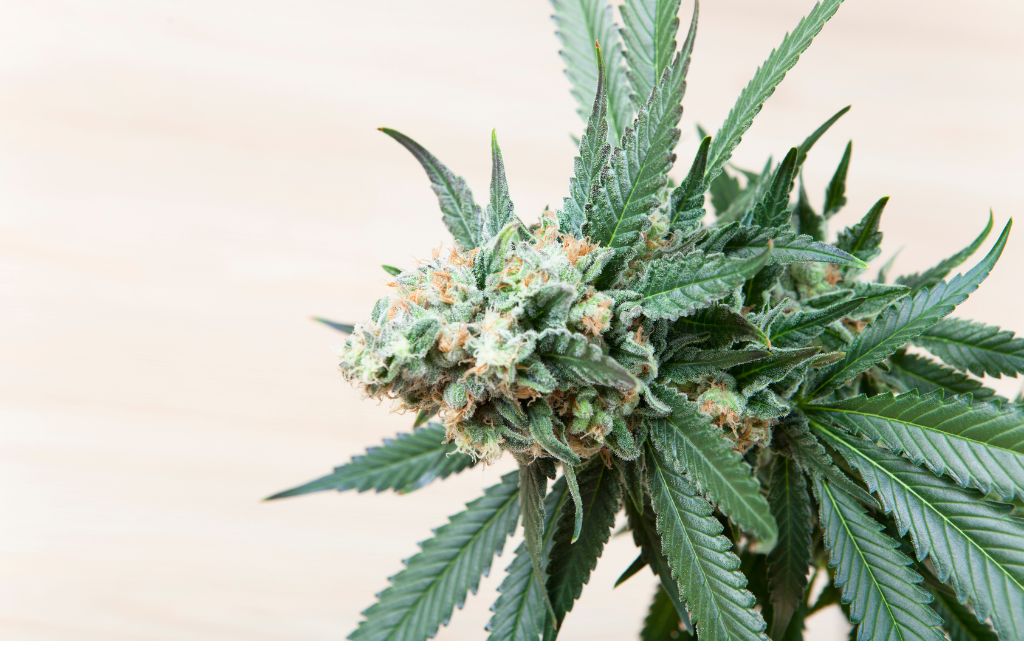THCa Flower: Explore Its Healing Potential
The world of cannabis is vast and varied, with numerous compounds offering unique benefits. Among these, THCa (tetrahydrocannabinolic acid) has garnered attention for its potential therapeutic properties. Unlike its more famous counterpart THC, THCa is non-psychoactive, making it an intriguing option for those seeking relief without the high.
Understanding THCa
THCa is a cannabinoid found in raw and live cannabis plants. It is the precursor to THC, the compound responsible for the psychoactive effects of cannabis. When cannabis is heated through smoking, vaping, or cooking, THCa converts to THC. This process, known as decarboxylation, is what gives cannabis its intoxicating properties.
In its raw form, THCa does not produce a high. This characteristic makes it appealing for individuals interested in the therapeutic benefits of cannabis without the psychoactive effects. Research into THCa is still in its early stages, but preliminary findings suggest a range of potential health benefits.
Potential Health Benefits of THCa
- Anti-inflammatory Properties: THCa has shown promise in reducing inflammation, which could be beneficial for conditions like arthritis and inflammatory bowel disease.
- Neuroprotective Effects: Some studies suggest that THCa may help protect brain cells, potentially offering benefits for neurodegenerative diseases such as Alzheimer’s and Parkinson’s.
- Anti-emetic Properties: THCa may help reduce nausea and vomiting, making it a potential option for those undergoing chemotherapy or dealing with other conditions that cause these symptoms.
- Appetite Stimulation: Like THC, THCa may help stimulate appetite, which can be beneficial for individuals with conditions that cause appetite loss.
Case Studies and Research
While research on THCa is still emerging, several studies and anecdotal reports highlight its potential. A study published in the “British Journal of Pharmacology” explored the anti-inflammatory effects of THCa, finding it to be effective in reducing inflammation in animal models. Another study in “Phytomedicine” examined the neuroprotective properties of THCa, suggesting its potential in protecting against neurodegenerative diseases.
Anecdotal evidence from patients and healthcare providers further supports these findings. Many individuals report relief from symptoms such as pain, inflammation, and nausea after using THCa-rich products. These personal accounts, while not scientifically rigorous, provide valuable insights into the potential benefits of THCa.
THCa in the Market
The growing interest in THCa has led to an increase in products available on the market. Consumers can find THCa in various forms, including raw cannabis flower, tinctures, and capsules. These products offer different methods of consumption, allowing individuals to choose the option that best suits their needs.
- Raw Cannabis Flower: Consuming raw cannabis flower is one way to access THCa. This method involves juicing or blending the raw plant material, preserving the THCa content.
- Tinctures: THCa tinctures provide a convenient way to consume the compound. These liquid extracts can be taken sublingually or added to food and beverages.
- Capsules: For those who prefer a more traditional method of consumption, THCa capsules offer a precise and easy-to-use option.
Legal Considerations
The legal status of THCa varies by region. In some areas, THCa is considered legal due to its non-psychoactive nature. However, regulations can be complex, and it’s important for consumers to understand the laws in their area before purchasing or using THCa products.
In the United States, the legal landscape is particularly varied. Some states have embraced cannabis in all its forms, while others maintain strict regulations. As research continues and public perception evolves, the legal status of THCa may change, potentially expanding access to this promising compound.
Conclusion
THCa offers a unique opportunity for those seeking the therapeutic benefits of cannabis without the psychoactive effects. With potential applications in reducing inflammation, protecting brain cells, and alleviating nausea, THCa holds promise as a versatile therapeutic agent. As research progresses, a clearer understanding of its benefits and applications will emerge, potentially transforming the way we approach cannabis-based therapies.
For individuals interested in exploring THCa, it’s important to stay informed about the latest research and legal developments. By doing so, they can make educated decisions about incorporating THCa into their wellness routines, potentially unlocking a new avenue for healing and relief.
